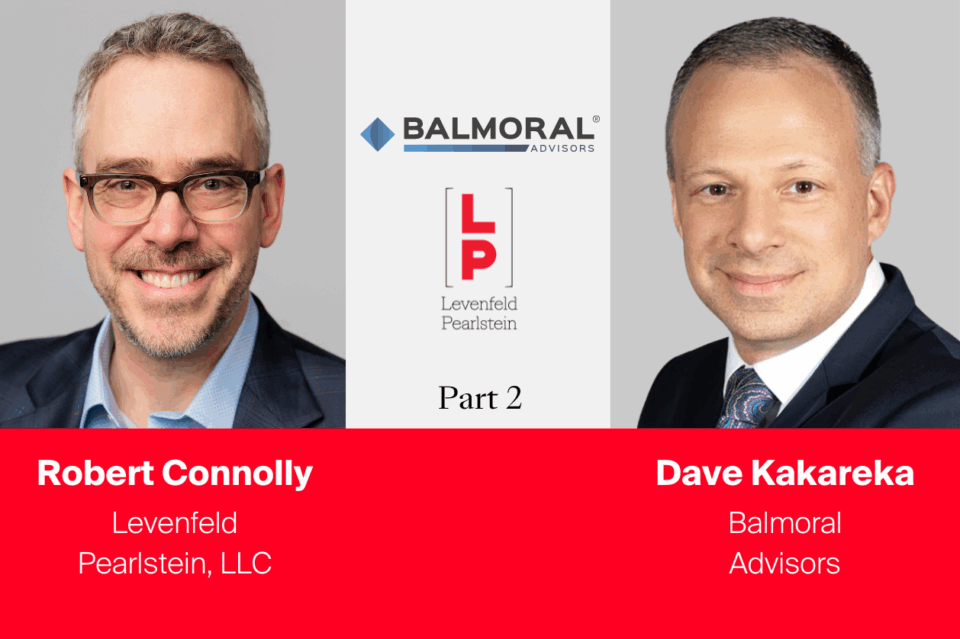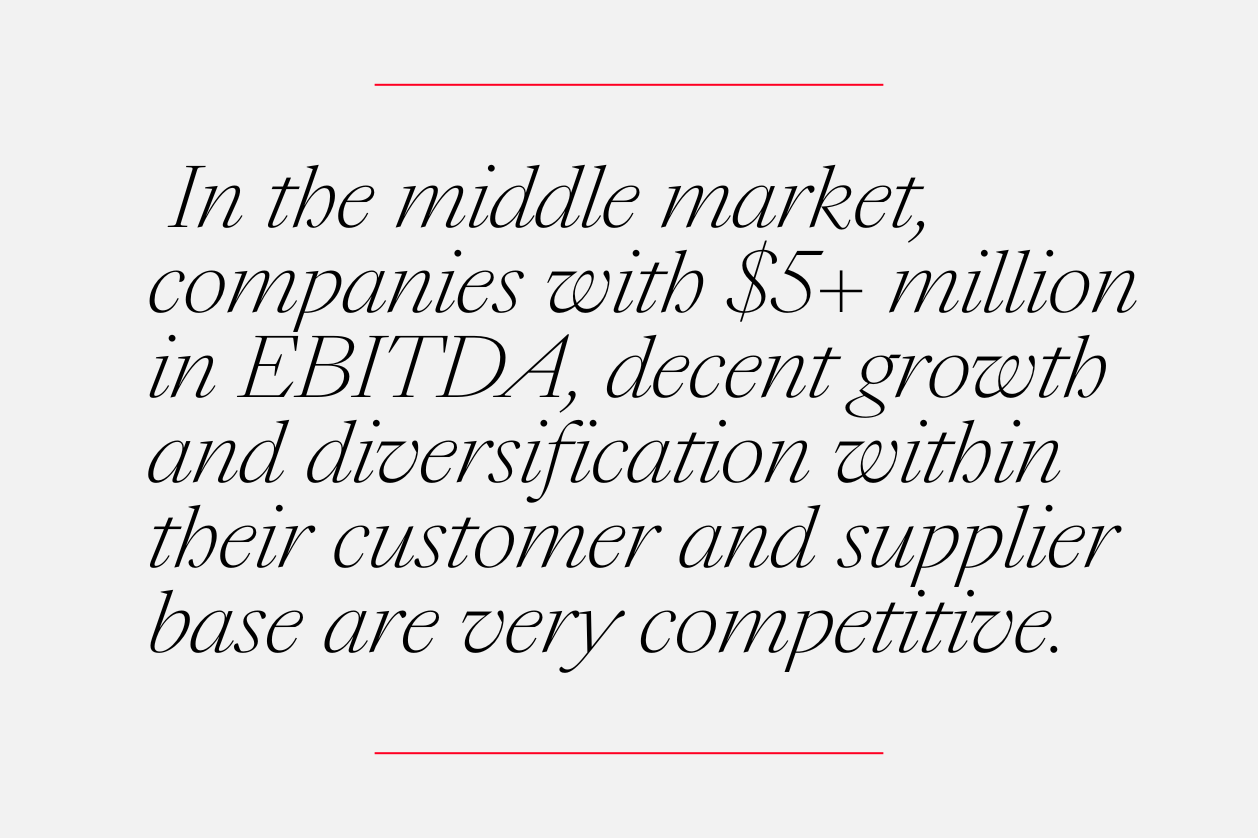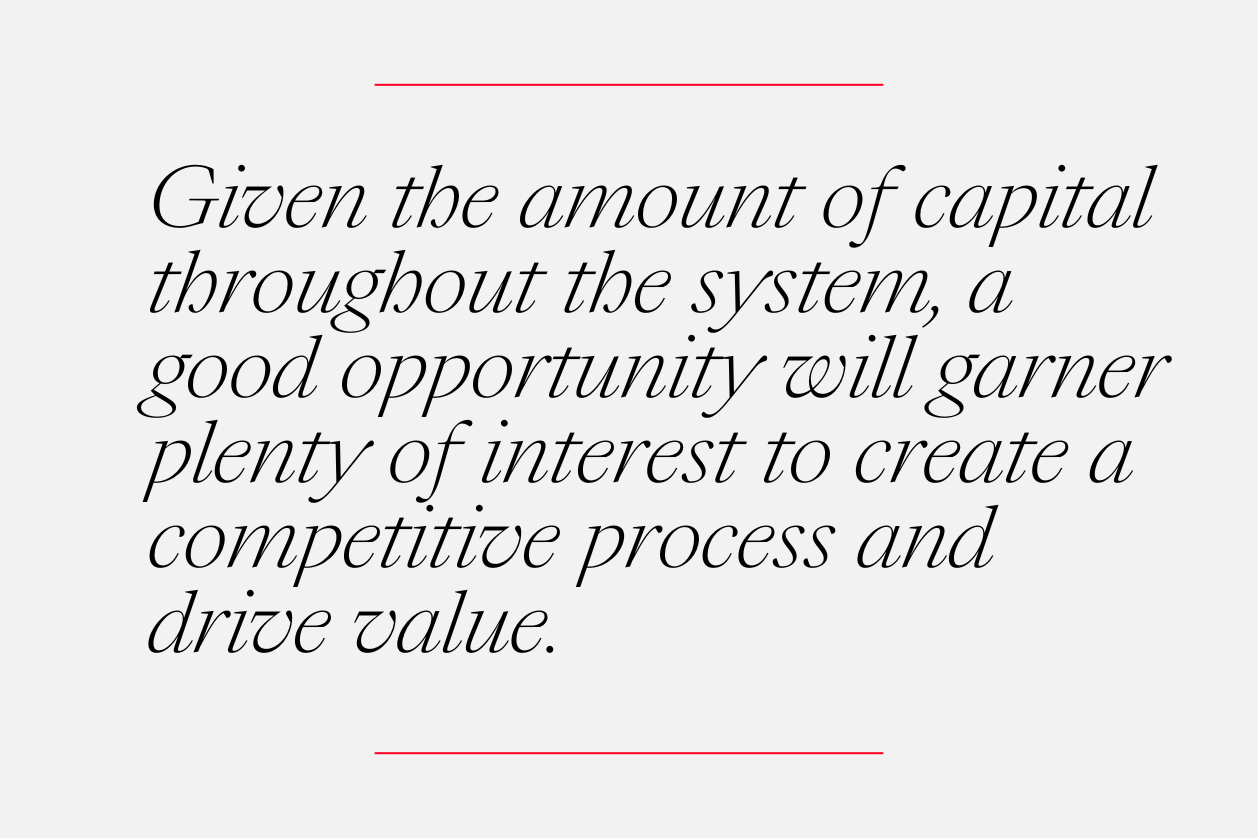M&A Insights Series – Tariff Impacts, Deal Processes, and Advice for Buyers and Sellers: A Conversation with Dave Kakareka of Balmoral Advisors (Part 2)

To help businesses, owners, investors, and deal professionals better understand the evolving M&A market, Robert Connolly – a partner in LP’s Corporate Practice Group and leader of LP’s Independent Sponsor and Private Equity teams – shares a series of conversations with M&A experts.
Below is his conversation with Dave Kakareka, Managing Director at Balmoral Advisors, an independent investment banking firm. Dave has over 15 years of experience working closely with clients to develop and implement mergers and acquisitions transaction strategies and capital raise mandates. In this second of a two-part Q&A, Dave discusses the impact of tariffs on deal activity, analyzes how strategics and private equity approach deals differently, and offers advice to potential sellers and buyers. In part one, he explained the middle market deal landscape, valuation expectations, and industry trends.
The responses below have been edited slightly for brevity and clarity.
How competitive are the deal processes and buyer behaviors for middle market sale processes?

The level of competition in any transaction highly depends on the quality of the company or asset. In the middle market, companies with $5+ million in EBITDA, decent growth and diversification within their customer and supplier base are very competitive. These days, if a business can avoid overseas suppliers the attractiveness grows further. There is excess equity and debt capital to be invested in businesses that have proven growth and quality margins. The volume of these opportunities has declined, which has only increased the competitiveness when they do become available.
Deal processes are less competitive for companies and assets that do not fit all the typical parameters of a financial buyer (e.g. size, ownership dynamics, management complement). Strategic buyers are typically looking for sizeable acquisition opportunities so smaller companies often do not garner the attention of larger competitors. Balmoral will analyze a business for its potential fit among strategic buyers to increase the likelihood of interest and to support valuation.
How are strategic and private equity teams approaching deals differently?
Strategic buyers remain active due to their longer-term view of acquisitions, their industry, and excess capital availability. The corporate development teams are typically smaller, which limits the number of opportunities to be reviewed, executed and integrated. However, certain companies (and industries) are designed to grow via acquisition and have teams throughout their organization to handle increased acquisition activity.
Within private equity, the priority is finding opportunities that fit a specific investment directive and the fund’s general parameters (e.g. location, size, industry). Platform investments specifically must fall within these parameters as the fund’s limited partners invested based on these directives. PE will review hundreds of opportunities at a high level, but the time spent is on those within each firm’s focus.
What are the biggest challenges facing the middle market?

Recent surveys from GF Data have stated the biggest challenge facing middle market M&A is price expectations between buyers and sellers. It was noteworthy that 50% of respondents stated general economic uncertainty as the second biggest challenge with tariffs, inflation, and recession fears consolidated into one category. However, the two concerns are likely connected as buyers lower their price expectations for that business and economic uncertainty.
Balmoral deals in a market of uncertainties to deliver the best result for each client based on their individual goals. Waiting for ideal timing is keeping many on the sidelines for the wrong reasons. There was a pandemic, rising interest rates, a feared slowdown and a tariff war just this decade and the M&A market continued albeit at lower levels. Given the amount of capital throughout the system, a good opportunity will garner plenty of interest to create a competitive process and drive value.
How are tariffs or trade restrictions impacting deal valuations?
It is probably early to determine the impact on valuation as we still do not know what is temporary and what is permanent. The general uncertainty will restrict certain sellers from coming to market or delay active processes altogether until the specific tariff/trade impact is known to both parties.
From a valuation standpoint, it will be important to show flexibility in your supply chain along with the ability to pass through price increases once more permanent supply pricing is in place.
What advice would you give buyers and sellers over the next 12-18 months?
For sellers, prepare your company for the stringency of due diligence. Take the time to clean up the balance sheet through collecting overdue accounts receivables, right-sizing inventory, addressing slow-moving inventory, while ensuring accounts payable are current. Preparation may also include catching up on any deferred equipment or facility maintenance to present your business in its best light.
Buyers can always increase the level of communication with the seller or its representatives. The basics of communicating your interest level and meeting submission deadlines can show favor within a competitive process. If a buyer remains active throughout the bidding and diligence process, it will project a higher probability of closing to the sellers and their representatives.
Can you give an example of a deal that exemplifies the current state of the middle market?
We have certainly overused the trade uncertainty in our discussion; however, the impact on middle market business is real. Active sale processes have been placed on hold as owners and executives shift focus back to their business. Once the first tariffs went into place, the dynamic shifted from answering buyer questions about tariffs (and margins) to managing the impact within their own businesses.
For more information on Balmoral Advisors, visit their website. For more information on Dave Kakareka, view his bio.
Interested in participating in a future interview series? Please contact Robert Connolly at rconnolly@lplegal.com.
To read other articles in this series, please see here: Insights | LP (lplegal.com)